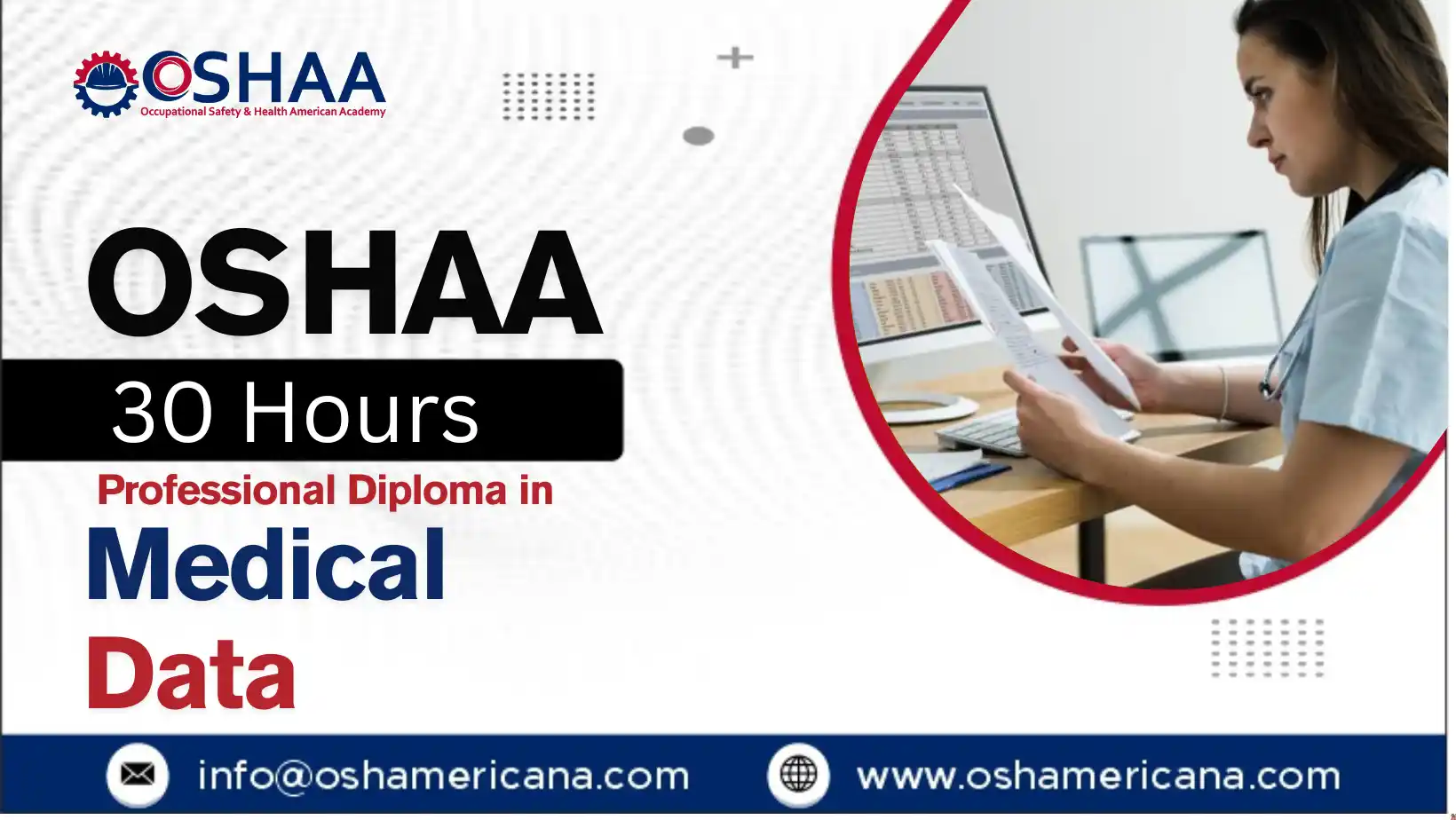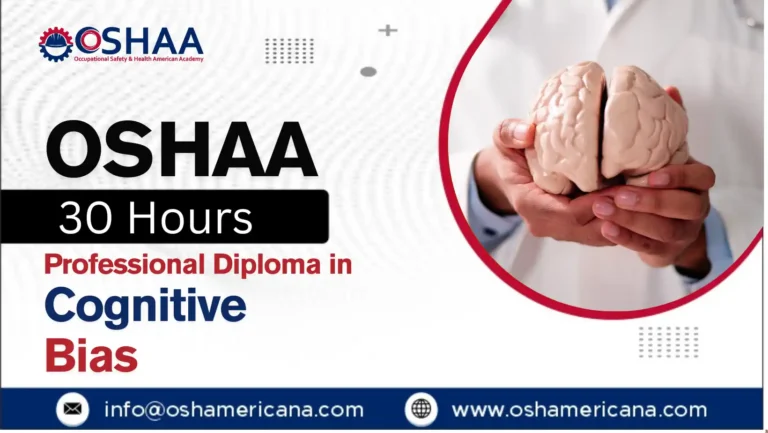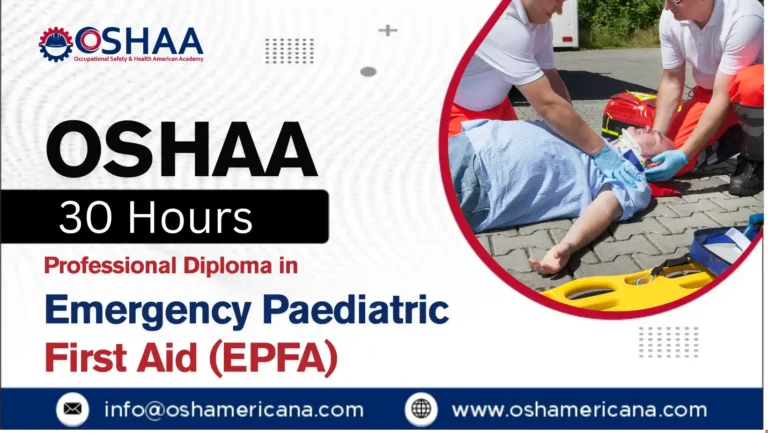In today’s data-driven healthcare environment, professionals with expertise in medical data management are in high demand. The OSHAA 30-Hours Professional Diploma in Medical Data is a comprehensive training programme designed to equip individuals with the essential knowledge and practical skills required to handle and analyse medical data accurately and ethically. Aligned with UK professional standards, this diploma offers a robust foundation for those looking to advance in the healthcare sector or pivot into a specialised data-related role.
This diploma is a short yet intensive training course focused on developing core competencies in medical data handling. Delivered over 30 hours, the curriculum covers a broad spectrum of topics, including healthcare data systems, patient data confidentiality, electronic health records (EHR), data analysis techniques, and regulatory compliance such as GDPR and HIPAA. The course is suitable for both new entrants into the healthcare sector and current professionals seeking formal recognition of their skills.
Upon successful completion, participants can pursue roles such as Medical Data Technician, Health Information Officer, Clinical Data Coordinator, or EHR Specialist. The diploma also provides a solid grounding for progression into more advanced programmes, including diplomas in healthcare analytics, public health data, or IT for healthcare systems.
The OSHAA 30-Hours Professional Diploma in Medical Data stands out as a strategic investment in your professional development. Whether you aim to improve your current role or embark on a new career path, this qualification equips you with the knowledge and confidence to navigate the complex and evolving world of healthcare data.
OSHAA 30-Hours Professional Diploma in Medical Data
Study Units
Learning Outcomes
Introduction to Medical Data and Health Informatics (3 Hours)
- Understand the fundamentals of medical data and its role in healthcare
- Recognise the key components and functions of health informatics systems
- Identify various types of health data and their sources
- Explain the importance of digital transformation in modern healthcare
Electronic Health Records (EHR) Systems and Management (4 Hours)
- Describe the structure and functionality of EHR systems
- Demonstrate how to access, update, and maintain patient records securely
- Understand interoperability and integration of EHR across healthcare settings
- Identify challenges and best practices in EHR implementation
Data Collection, Entry, and Validation Techniques (3 Hours)
- Apply correct procedures for collecting and entering patient data
- Recognise common data entry errors and how to avoid them
- Use validation techniques to ensure accuracy and completeness of records
- Understand the significance of standardisation in data collection
Patient Confidentiality and Data Protection Laws (GDPR & HIPAA) (5 Hours)
- Explain the core principles of GDPR and HIPAA in healthcare contexts
- Identify key responsibilities in maintaining patient confidentiality
- Apply best practices for secure handling of sensitive health information
- Recognise legal implications of data breaches and non-compliance
Medical Coding Standards and Classification Systems (5 Hours)
- Understand the role of coding in clinical documentation and billing
- Apply commonly used coding systems such as ICD-10 and CPT
- Ensure accurate coding to reflect diagnoses and procedures
- Interpret clinical documentation for coding purposes
Healthcare Data Quality and Accuracy Control (4 Hours)
- Define key dimensions of healthcare data quality
- Implement methods for monitoring and improving data accuracy
- Detect and correct data inconsistencies or discrepancies
- Understand the impact of poor data quality on patient care and decision-making
Basic Data Analysis and Interpretation in Healthcare (4 Hours)
- Use basic statistical tools to interpret healthcare data
- Identify trends and patterns within datasets
- Support clinical and administrative decisions through data insights
- Understand the relevance of visualisation tools in healthcare reporting
Information Governance and Ethical Considerations (2 Hours)
- Understand principles of information governance in a healthcare setting
- Recognise ethical issues related to patient data use and sharing
- Promote accountability and transparency in data management
- Apply ethical frameworks to real-world healthcare scenarios
Course Benefits: OSHAA 30-Hours Professional Diploma in Medical Data
- Professional Recognition
Gain an industry-recognised qualification that demonstrates your expertise in medical data management and compliance with global data protection standards. - Career Advancement Opportunities
Enhance your employability in a variety of healthcare and administrative roles, including positions in hospitals, clinics, insurance companies, and health IT departments. - Practical and Job-Ready Skills
Develop hands-on skills in data entry, EHR management, data analysis, and medical coding, preparing you for immediate application in real-world healthcare settings. - Foundation for Further Study
Use this diploma as a stepping stone to pursue advanced qualifications in health informatics, clinical data management, or public health data analytics. - Compliance and Legal Awareness
Understand and apply data protection regulations such as GDPR and HIPAA, ensuring ethical and lawful handling of sensitive patient information. - Improved Decision-Making Ability
Learn how to interpret healthcare data effectively to support clinical, administrative, and policy-related decisions. - Adaptability in a Digital Health Environment
Gain essential knowledge for working in modern, data-driven healthcare systems where digital competence is a growing requirement. - Flexible Learning Structure
Complete the course over a manageable 30-hour schedule, making it ideal for working professionals and students. - Support Patient Safety and Care Quality
Improve data accuracy and integrity, contributing to better patient outcomes and streamlined healthcare delivery. - International Applicability
Acquire skills and knowledge applicable in healthcare systems across the UK and globally, opening doors to international career opportunities.
The OSHAA 30-Hours Professional Diploma in Medical Data is designed for individuals across the healthcare and administrative sectors who wish to gain specialised skills in managing medical data. This course is particularly suitable for:
- Healthcare Administrators and Office Staff
Individuals responsible for managing patient records, appointments, or hospital data systems who want to formalise their expertise. - Medical Secretaries and Receptionists
Professionals involved in day-to-day healthcare documentation and communication looking to deepen their understanding of data protocols. - Health Information Technicians and Data Clerks
Those handling the collection, entry, and maintenance of patient data seeking to upgrade their skills and align with best practices. - IT Professionals in Healthcare Settings
Technicians and analysts working with electronic health record systems and healthcare data security. - Nurses and Allied Health Professionals
Clinical staff interested in understanding how data impacts patient care, reporting, and healthcare quality management. - Students and Recent Graduates
Aspiring healthcare professionals looking to enter the field of medical data management with a recognised qualification. - Compliance and Quality Officers
Individuals responsible for ensuring data protection, legal compliance, and healthcare quality standards within their organisations. - Career Changers
Professionals from other industries aiming to transition into healthcare data or health informatics roles.
No prior experience in medical data is required, making the course accessible to both newcomers and professionals seeking to expand their competencies.







